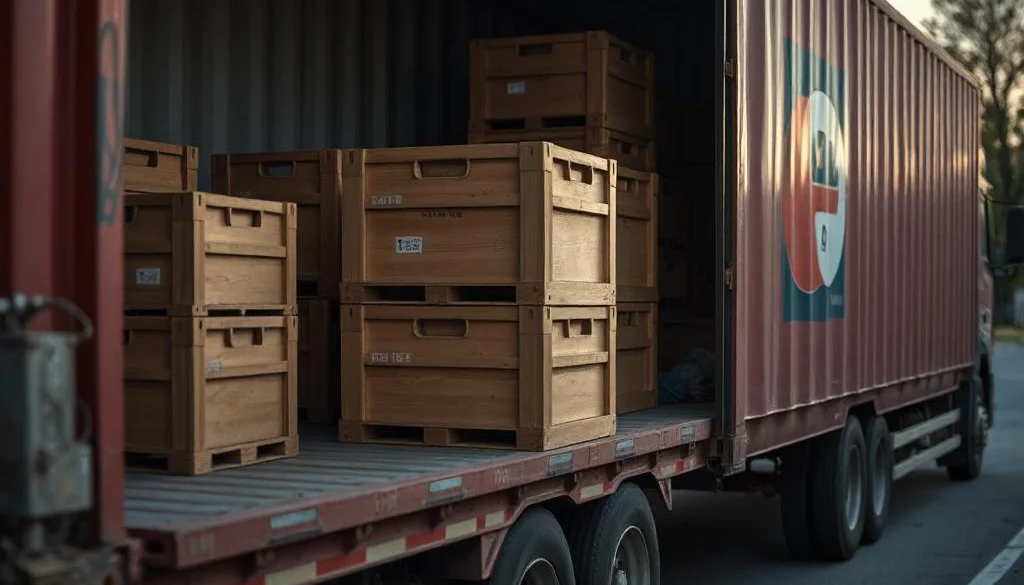
Best Practices for Handling Palletized Goods in Transit
Ensuring the safety and integrity of palletized goods during transit is essential for minimizing damage and maintaining logistical efficiency. This guide details effective handling techniques and best practices to manage palletized goods from loading to delivery.
Essential Handling Techniques for Palletized Goods
Correct handling techniques are crucial to prevent damage and secure palletized goods throughout their journey.
Proper Use of Forklifts: Essential Practices for Handling Palletized Goods
Operate forklifts with care to maintain the stability of palletized goods. Moreover, ensure the forks are evenly positioned and appropriately tilted. Additionally, secure the load properly to prevent slipping during movement. Keeping the pallets at a low height while in motion minimizes the risk of toppling. Learn more about our equipment handling services.
Securing the Load Effectively
To prevent shifting during transit, use stretch wrap or strapping to secure palletized goods firmly. Wrapping should extend to the pallet’s base to properly anchor the load, and employing corner boards can further enhance load stability. Check out our secure packing solutions.
Load Management and Distribution: Key Practices for Handling Palletized Goods
Avoid overloading pallets to prevent instability and potential damage. Adhere to the pallet manufacturer’s weight limits and ensure even distribution of goods across the pallet for balanced transport.
Pallet Inspection and Load Planning
Inspecting pallets for integrity and planning the loading process are critical steps in the handling of palletized goods.
Pallet Inspection Prior to Use
Thoroughly inspect each pallet for any signs of wear or damage such as cracks, splinters, or loose planks. Using damaged pallets increases the risk of failure during transport, potentially causing product spills or damage. Explore our crating options for added security.
Strategic Loading Process: Streamlining the Handling of Palletized Goods
Effectively planning the loading of palletized goods into transportation vehicles optimizes space utilization and enhances stability. Moreover, strategically place heavier pallets at the bottom and lighter ones on top. Additionally, ensure the load remains balanced and secure throughout the vehicle to prevent shifting during transit. Learn about our shipping services.
Conclusion: Ensuring Safe Transit for Palletized Goods
By implementing these best practices, companies can greatly reduce the risks associated with transporting palletized goods. Proper handling, securing, and planning ensure that goods are delivered in pristine condition, enhancing overall supply chain efficiency and customer satisfaction.
For more information on improving your logistics operations or to inquire about our full range of palletizing services, visit ProHuber for expert guidance and tailored solutions.




